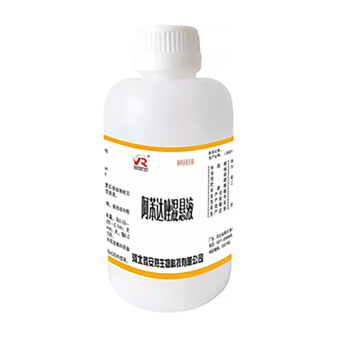- Afrikaans
- Albanian
- Amharic
- Arabic
- Armenian
- Azerbaijani
- Basque
- Belarusian
- Bengali
- Bosnian
- Bulgarian
- Catalan
- Cebuano
- Corsican
- Croatian
- Czech
- Danish
- Dutch
- English
- Esperanto
- Estonian
- Finnish
- French
- Frisian
- Galician
- Georgian
- German
- Greek
- Gujarati
- Haitian Creole
- hausa
- hawaiian
- Hebrew
- Hindi
- Miao
- Hungarian
- Icelandic
- igbo
- Indonesian
- irish
- Italian
- Japanese
- Javanese
- Kannada
- kazakh
- Khmer
- Rwandese
- Korean
- Kurdish
- Kyrgyz
- Lao
- Latin
- Latvian
- Lithuanian
- Luxembourgish
- Macedonian
- Malgashi
- Malay
- Malayalam
- Maltese
- Maori
- Marathi
- Mongolian
- Myanmar
- Nepali
- Norwegian
- Norwegian
- Occitan
- Pashto
- Persian
- Polish
- Portuguese
- Punjabi
- Romanian
- Russian
- Samoan
- Scottish Gaelic
- Serbian
- Sesotho
- Shona
- Sindhi
- Sinhala
- Slovak
- Slovenian
- Somali
- Spanish
- Sundanese
- Swahili
- Swedish
- Tagalog
- Tajik
- Tamil
- Tatar
- Telugu
- Thai
- Turkish
- Turkmen
- Ukrainian
- Urdu
- Uighur
- Uzbek
- Vietnamese
- Welsh
- Bantu
- Yiddish
- Yoruba
- Zulu
8 月 . 01, 2024 01:26 Back to list
Choosing Animal-Safe Disinfectants for Effective Cleaning and Protection in Your Home
Safe Disinfectants for Animals A Comprehensive Guide
Maintaining a clean environment is essential for the health and well-being of our pets and livestock. However, using the right disinfectants is crucial, as many common cleaning agents can be harmful to animals. This article explores safe disinfectants suitable for environments occupied by animals, ensuring their safety while achieving effective sanitation.
Understanding the Need for Disinfectants
Disinfectants are chemical agents designed to eliminate or reduce harmful microorganisms on surfaces. They play a vital role in preventing the spread of diseases, especially in places like veterinary clinics, animal shelters, farms, and homes with pets. However, not all disinfectants are created equal, and many contain harsh chemicals that can pose risks to animals.
Choosing Animal-Safe Disinfectants
1. Natural and Plant-Based Disinfectants Many natural disinfectants are effective and safe for animals. Products containing ingredients like vinegar, hydrogen peroxide, and baking soda can help disinfect surfaces without toxic residues. For instance, a mixture of water and vinegar can effectively clean pet toys, cages, and surfaces without posing risks to your furry friends.
2. Thyme Oil and Other Essential Oils Some essential oils, particularly thyme oil, have been recognized for their antimicrobial properties. When diluted properly, they can be used to disinfect areas frequented by animals. However, it's essential to ensure that any essential oil used is safe for pets, as some oils can be toxic, especially to cats and dogs.
3. Commercial Disinfectants Labeled as Safe There are several commercial disinfectants specifically formulated to be safe for use around pets. These products usually indicate their safety on the label. Look for non-toxic, biodegradable formulas. Popular options include solutions that are free from bleach, phenols, and quaternary ammonium compounds, as these can be harmful to animals.
4. Vinegar and Baking Soda Combinations For everyday cleaning, a simple mixture of vinegar and baking soda can be effective. This natural approach not only disinfects but also deodorizes. The bubbling reaction between baking soda and vinegar helps lift dirt and grime, making it an excellent choice for cleaning pet areas.
disinfectant safe for animals

Precautions When Using Disinfectants
Even with animal-safe disinfectants, it’s important to follow certain precautions
- Ventilation Ensure that the area is well-ventilated when using any cleaning products, even natural ones. This helps to dissipate any strong odors and potential fumes that could irritate sensitive animal respiratory systems.
- Dilution Always follow the manufacturer’s dilution instructions. Concentrated solutions, even if labeled safe, can irritate skin or respiratory systems if not used as directed.
- Application Avoid spraying disinfectants directly onto pets or in their immediate environment. Instead, apply the disinfectant to surfaces and allow it to dry thoroughly before reintroducing pets or animals to those areas.
- Rinse Surfaces For disinfectants that require rinsing (like vinegar), be sure to rinse surfaces that pets frequently contact to remove any residue.
Conclusion
Choosing the right disinfectant is vital in creating a safe environment for animals. By opting for natural or commercial products specifically labeled as safe for pets, you ensure that your efforts to maintain cleanliness do not compromise their health. With diligent cleaning practices and the use of appropriate disinfectants, you can keep your animals safe and healthy, while still achieving a hygienic living space. Remember, when in doubt, always consult with a veterinarian regarding the best cleaning products for your furry friends.
-
The Power of Radix Isatidis Extract for Your Health and Wellness
NewsOct.29,2024
-
Neomycin Sulfate Soluble Powder: A Versatile Solution for Pet Health
NewsOct.29,2024
-
Lincomycin Hydrochloride Soluble Powder – The Essential Solution
NewsOct.29,2024
-
Garamycin Gentamicin Sulfate for Effective Infection Control
NewsOct.29,2024
-
Doxycycline Hyclate Soluble Powder: Your Antibiotic Needs
NewsOct.29,2024
-
Tilmicosin Premix: The Ultimate Solution for Poultry Health
NewsOct.29,2024













